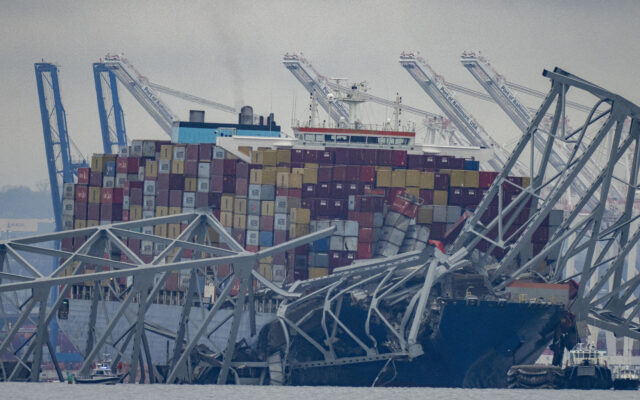Ripple effects in Iowa from collapse of Francis Scott Key bridge in Baltimore likely to be minimal

AMES — Supply chain experts say the bridge collapse that closed the Port of Baltimore last month likely will -not- have a major impact on Midwestern manufacturers, even though it could be the end of May before the port reopens.
Frank Montabon, a professor of supply chain management at Iowa State University, says farmers buying equipment could see cost increases related to the collapse, but the average consumer likely won’t, as firms adjust their supply chains. “That gets to the idea of resiliency. Can you deal with some sort of shock?” Montabon says. “Some companies are great at it and have figured that out very well. Some companies, for whatever reasons, they don’t want to take the time and energy to be ready for that.”
Henrik Sternberg, also an ISU professor of supply chain management, says domestic impact from the collapse will be small, but overseas may be a different story. “What this means is that the lead time to the overseas customers will get roughly three times longer,” Sternberg says, “and with a longer lead time, then for some time, the products will be less competitive.”
The Maryland port moved nearly $81 billion in foreign-bound cargo last year, part of which came from major ag equipment manufacturers like CNH Industrial and John Deere. Replacing the bridge may cost $400 million and take several years.
